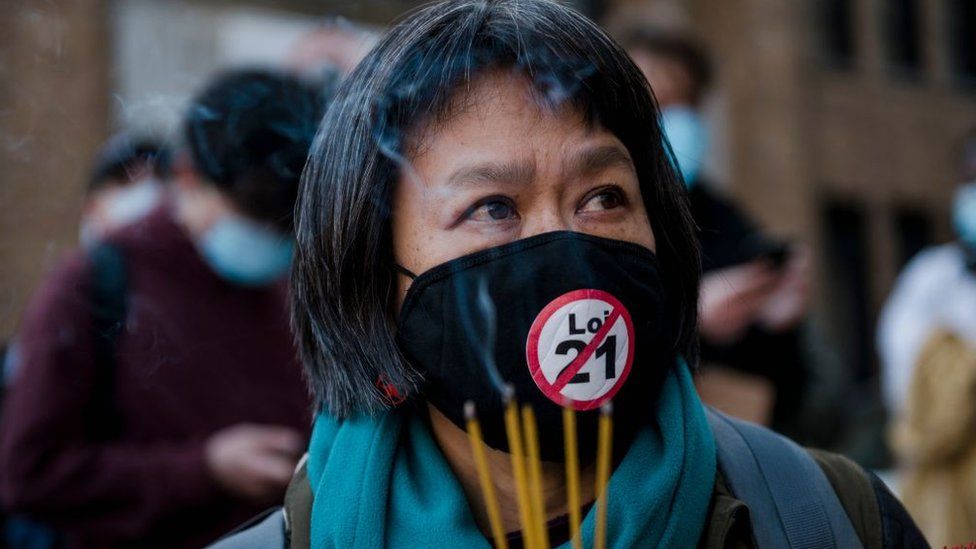A Canadian court has largely upheld a controversial Quebec law barring civil servants in positions of “authority” from wearing religious symbols at work.
But the province’s top court struck down parts of the law that applied to English-speaking public schools.
Bill 21 prevents judges, police officers, teachers and public servants from wearing symbols such as the kippah, turban, or hijab while at work.
Adopted in June 2019, it has fuelled fierce debate throughout the country.

The ruling will likely be appealed to the Canadian Supreme Court, local media say.
On Monday, Quebec Superior Court Justice Marc-André Blanchard said that under Canada’s constitution, Quebec had the right to restrict the religious symbols donned by government employees.
But Justice Blanchard ruled that this same ban could not be applied to English schools because of protections offered to minority language education rights under Canada’s Charter of Rights and Freedoms.
The judge also struck down a provision that barred members of Quebec’s legislature from wearing face coverings while at work.
Bill 21 follows earlier efforts in Quebec to bolster state secularism.
Advocates have called it a reasonable step, one with broad support in the predominantly French-speaking province.
Critics argue it is discriminatory, will make it more difficult for religious minorities to integrate into Quebec society, and that it unfairly targets Muslim women – though the legislation does not single out any religion by name.

Canadian Prime Minister Justin Trudeau has spoken out against the legislation in the past, saying in 2019 that it was “unthinkable” to “legitimise discrimination against citizens based on their religion”.
Similar to France, which passed a law banning veils, crosses and other visible religious symbols in state schools in 2004, Quebec has worked to maintain a secular identity while the historically Catholic province sees its Muslim population grow.
In October 2019, the province announced it would introduce a “values test” for economic immigrants wishing to reside in Quebec.
The 20-question evaluation, which came into effect last January, quizzes applicants on issues like democracy, French-speaking Quebec society, state secularism, and equality between men and women.